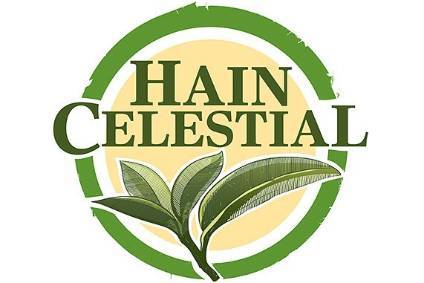
Hain Celestial is preparing plans for a notable product launch in the US next year as part of ongoing efforts to revamp its range – a strategy set to include more disposals.
The company, in the middle of a portfolio shake-up designed to improve sales and margins, is lining up a fresh move in the US plant-based category, CEO Mark Schiller said. At present, Hain Celestial’s US portfolio does include brands such as Candle Cafe vegan meals.

Discover B2B Marketing That Performs
Combine business intelligence and editorial excellence to reach engaged professionals across 36 leading media platforms.
“We have a strong plant-based business – Linda McCartney – in the UK. We have a strong plant-based business – Yves – in Canada. We are in the process of working with those two groups to figure out how we best relaunch into the United States with a plant-based offering,” Schiller told analysts on a call to discuss the US-based group’s first-quarter financial results yesterday (7 November).
“We are in the process of finalising what that will look like, and we will get that into some kind of a test in the second half of this [financial] year rather than spend a year doing all kinds of consumer research. We’ve got a good foundation from the two brands that we already have. And so we’re going to do more of the learning in market and get something into the market in the second half.”
In Hain Celestial’s first quarter, which ran to 30 September, the company’s net sales were down 7% at US$482.1m, or by 5% on a constant-currency basis.
Stripping out the impact of M&A – including the recent disposals of brands in the UK and in the US – as well as Hain Celestial’s moves to trim SKUs from its portfolio, net sales dipped 1%.

US Tariffs are shifting - will you react or anticipate?
Don’t let policy changes catch you off guard. Stay proactive with real-time data and expert analysis.
By GlobalDataFirst-quarter EBITDA was $17.7m, compared to a loss of $11.3m in the prior year period.
“We expect to grow adjusted gross profit dollars and margin – and adjusted EBITDA dollars and margin – versus a year-ago in each of the remaining quarters of the fiscal year, re-establish a profitable and stable baseline from which to grow [and a] decline on the top line throughout fiscal 2020 with second-half trends better than the first half,” Schiller said.
In the face of growing competition in the US, Hain Celestial has, in recent years, increasingly talked of a need to “simplify” its portfolio.
Those moves were started under founder – and now former CEO – Irwin Simon in 2016. Last summer, Simon stepped down as CEO, with Schiller joining last November.
Schiller has continued to trim the Hain Celestial portfolio, with a focus on profitable growth. And, as well as pruning SKUs, the company has offloaded assets, including its meats division in February, a tofu business in May and UK rice unit Tilda in August.
Former PepsiCo and Pinnacle Foods executive Schiller said Hain Celestial’s first-quarter results demonstrated the company was making “progress”. He added: “We’ve started executing our strategy, gross margins and EBITDA margins have expanded several hundred basis points. And in North America, where issues and opportunities were most evident, I’m very proud to report that EBITDA grew 55% this quarter, the first year-over-year growth in the last two years.”
Hain Celestial’s management told analysts the company would continue to cut SKUs from its portfolio, with the company also continuing to weigh up whether to offload more assets.
“The SKU rationalisation that we started in Q4 of last year will end sometime in Q4 of this year. My expectation is, however, that you’re always pruning unperforming SKUs and replacing them with better SKUs. The difference going forward should be that we have an innovation pipeline that allows us to replace our own underperforming SKUs with new SKUs,” James Langrock, Hain Celestial’s outgoing CFO, said.
Alongside Hain Celestial’s first-quarter results, the company also reported Langrock is to leave the Ella’s Kitchen owner next month, to be replaced by an executive from Hershey.
Schiller added: “We’ve … said publicly that if a brand is not strategic for us or it would take very significant investment to turn it around, investment that would come at the expense of the … brands that we think have much more potential, we will explore selling it, if appropriate. And if there’s no logical buyer and it isn’t worth more to somebody else in their portfolio, we will also consider shutting it down. So, all of those are options. The bottom line is we have to get these brands to either perform well or we should look for an alternative.”
Meanwhile, the Hain Celestial chief executive, who said when he arrived the “pipeline” for new products was “fairly bare”, was pushed on the company’s innovation plans.
“I’m very pleased to say we have a robust multi-year pipeline that has been developed. We’re very excited about it. What we have to wait for now is the categories have to reset, right? Some of them only reset once a year. Some of them reset twice a year. But there is innovation coming in the second half of the year on yogurt. There’s innovation coming in the second half of the year on snacks.”





